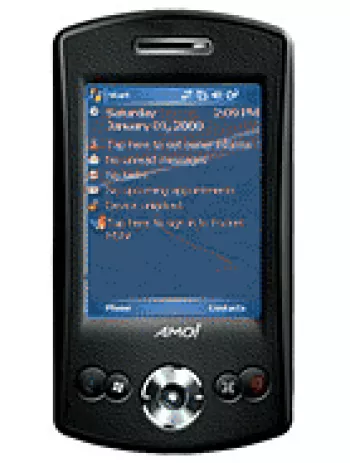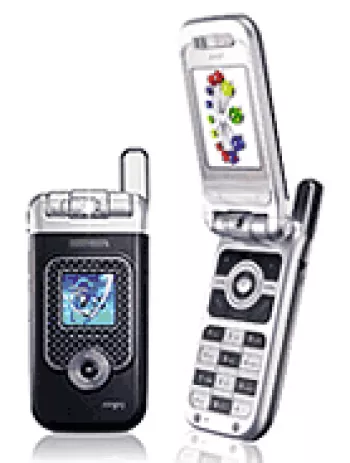
Introduction
The Amoi H801 is a classic feature phone that was introduced in the second quarter of 2006. Though officially discontinued, it remains a noteworthy example of early mobile technology evolution. The phone was designed with basic features that catered to the essential communication needs of users at the time. This article explores the various specifications and features of the Amoi H801 in detail.
Design and Build
The Amoi H801 features a compact and lightweight design with dimensions of 93 x 50 x 26 mm and a weight of 129g. This makes it portable and easy to handle. The phone sports a minimalist design typical of feature phones from the mid-2000s. It accommodates a Mini-SIM card and comes in a sleek silver color, giving it a clean and professional look. Despite its small size, the device is built with a sturdy body that can withstand daily wear and tear.
Display
The phone is equipped with a 2.0-inch TFT display capable of rendering 256K colors. The screen has a resolution of 176 x 220 pixels, offering visuals at a density of roughly 141 pixels per inch. While it might not compare with modern smartphone displays, the Amoi H801's screen was adequate for viewing photos and navigating menus during its time.
Camera Capabilities
One of the standout features of the Amoi H801 is its 1.3-megapixel main camera. The camera is equipped with a unique 180-degree rotating lens, a feature that was rather innovative during its release. This rotating mechanism allows users to easily switch between capturing selfies and regular photos. Despite the relatively low megapixel count by modern standards, the camera was quite functional for casual photography. It is also capable of recording videos in QCIF format.
Network and Connectivity
The Amoi H801 supports GSM/UMTS network technology. It is compatible with a range of frequencies including GSM 900, 1800, and 1900, as well as UMTS 2100. Users could enjoy basic mobile data speeds of up to 384 kbps. However, the phone lacks more contemporary connectivity options such as Wi-Fi, but it offers Bluetooth as an optional feature for wireless exchanges. Unfortunately, it does not come with support for radio or GPS positioning.
Memory and Storage
In terms of storage, the Amoi H801 is quite limited by today’s standards, offering only 7MB of internal memory. However, it includes a dedicated microSD slot for expandable storage, allowing users to store more contacts, call records, and multimedia files. The phonebook itself supports both photo and video call features while providing records for 20 dialed, received, and missed calls each.
Battery Life
The device is powered by a removable Li-Ion 720 mAh battery. While small, this battery is sufficient to keep the phone operational for extended periods. On a full charge, it offers a stand-by time of up to 200 hours and a talk time of up to 10 hours, which was more than adequate for general usage during its era.
Audio and Entertainment
For sound, the Amoi H801 lacks a loudspeaker and a 3.5mm audio jack, which restricts its capacity for audio playback. However, it supports vibration and downloadable polyphonic and MP3 ringtones. The phone also comes with built-in games and support for Java applications (MIDP 2.0), providing users with some entertainment options.
Software and Functionality
Operating as a feature phone, the Amoi H801 runs a basic system that supports fundamental functionalities such as SMS, MMS, and email messaging. Its browser is WAP 2.0 capable, allowing users to access simpler web pages. These basic functions cater well to users looking for straightforward communication tools.
Conclusion
The Amoi H801, while no longer in production, represents a significant piece of mobile technology history. It embodies the features and design standards of its era, appealing to those in need of simple and reliable communication. Its modest specifications reflect the technology landscape of the mid-2000s, appealing to tech enthusiasts and collectors who appreciate the evolution of mobile devices.
Key Features of Amoi H801
- Supports both GSM and UMTS technology
- Compact dimensions: 93 x 50 x 26 mm, weight 129g
- TFT display with 256K colors
- Expandable storage via microSD card slot
- 1.3 MP main camera with 180-degree rotating lens
- Removable Li-Ion 720 mAh battery with up to 10 hours talk time
- Supports SMS, MMS, and Email messaging
- Java MIDP 2.0 enabled for applications and games
Amoi H801 Key Disadvantages
- The device supports only GSM/UMTS networks and lacks support for modern 4G and 5G technologies.
- Discontinued status means that no official support or updates are available.
- Mini-SIM usage is outdated compared to more modern SIM card sizes.
- The screen size is small at 2.0 inches with a low screen-to-body ratio.
- Low screen resolution with only 176 x 220 pixels.
- Very limited internal storage of 7MB, making it insufficient for modern app or file requirements.
- Main camera is basic with only 1.3 MP resolution.
- No loudspeaker available, which limits audio playback options.
- Lacks a 3.5mm headphone jack, reducing audio versatility.
- No built-in WLAN or positioning (GPS), limiting connectivity options.
- No built-in radio feature.
- Proprietary USB interface may cause issues with cable compatibility.
View Also
More Phones
All Rights Reserved +13676 Phones © Mobilawy 2025
























